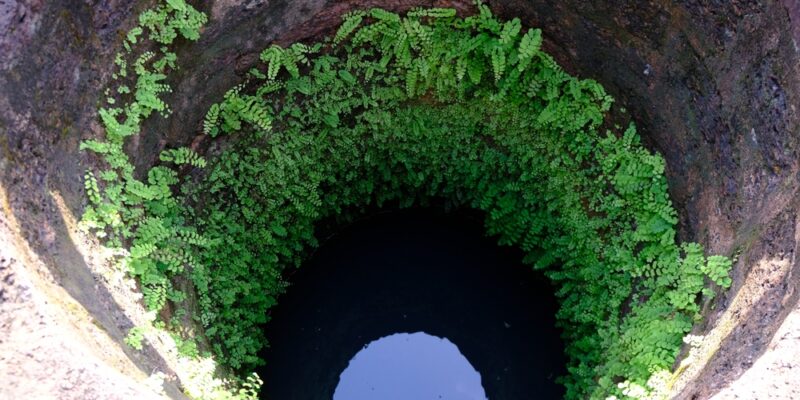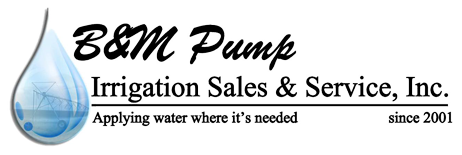
Understanding Aquifers and Well Placement in West Texas Geography
West Texas is a unique and challenging region when it comes to sourcing water due to its semi-arid climate, complex geological formations, and rapidly growing population. As communities and industries expand, understanding aquifers and making strategic decisions about water well drilling has become more critical than ever. With rising water well drilling cost, West Texas residents, businesses, and municipalities must carefully plan well placement while complying with local groundwater regulations. This article explores the role of aquifers, the impact of West Texas geography on water availability, legal considerations, and the strategic decisions involved in drilling successful wells.
The Role of Aquifers in West Texas Water Supply
Aquifers are underground layers of permeable rock, sand, or gravel that store groundwater. In West Texas, they are the primary sources of fresh water for residential, agricultural, and industrial needs. Several major aquifers dominate the region, including the Ogallala, Edwards-Trinity Plateau, Dockum, and Pecos Valley aquifers. Each has unique characteristics in terms of depth, water quality, and recharge rates.
The Ogallala Aquifer, one of the largest in the world, underlies much of the High Plains in West Texas. It is the backbone of agricultural irrigation but is facing severe depletion due to decades of overuse and slow recharge rates. In contrast, the Edwards-Trinity Plateau Aquifer, found farther south, is shallower but more localized, supplying water to rural ranches and smaller communities.
Understanding the characteristics of these aquifers is crucial for aquifer well placement in West Texas. Drilling too shallow can lead to unreliable water supplies, while drilling too deep without proper geological surveys can increase costs and risk tapping into brackish or unusable water. Professionals in the region rely on hydrological studies, water well logs, and advanced mapping technologies to determine optimal well locations.
Impact of West Texas Geography on Well Placement
West Texas is known for its diverse terrain, from the flat High Plains to rugged canyons and desert basins. These geographical variations directly influence water well drilling strategies. In areas where water-bearing formations are closer to the surface, drilling tends to be more affordable and faster. However, in regions where groundwater lies deep beneath thick layers of rock, the water well drilling cost, West Texas-wide, can rise significantly.
For example, parts of the Permian Basin have complex subsurface structures where layers of limestone and shale can make drilling technically challenging. In contrast, areas near Abilene may have more accessible groundwater but are subject to varying water quality levels due to local geological formations.
The growing demand for water in agricultural and industrial sectors also affects decisions about aquifer well placement in West Texas. Large-scale irrigation projects often require deep wells capable of sustaining high output rates, while residential properties typically prioritize access to shallower, more localized groundwater. These competing demands underscore the importance of site-specific hydrogeological assessments before drilling begins.
Legal and Regulatory Considerations for Well Drilling
Water rights and groundwater management in Texas are governed by a mix of local and state regulations, with significant differences across counties and groundwater conservation districts. In West Texas, understanding these rules is vital to avoid legal complications and unnecessary delays.
Under Texas’ “Rule of Capture,” landowners generally have the right to pump as much groundwater as they can from beneath their property. However, this freedom is often moderated by local groundwater conservation districts, which may impose restrictions to protect aquifer sustainability. For instance, well drilling permits in El Paso and other parts of West Texas are typically required before starting a project, especially in areas experiencing water scarcity.
Abilene and other central West Texas communities follow specific groundwater law frameworks to balance property rights with aquifer protection. These regulations cover aspects like well spacing, allowable pumping rates, and reporting requirements. Failure to comply with these standards can result in fines, penalties, or forced reductions in water usage.
Professional drilling companies are well-versed in navigating these legal frameworks and often assist property owners in securing permits and ensuring compliance. For anyone considering water well drilling in the region, early engagement with local groundwater districts and legal experts is strongly recommended.
Costs and Planning for Water Well Drilling
The water well drilling cost, West Texas-wide, varies widely depending on factors such as location, aquifer depth, well diameter, and water quality. On average, residential wells may cost anywhere from $5,000 to $15,000, while deep agricultural or municipal wells can exceed $50,000. Costs are influenced by drilling technology, casing materials, and whether advanced treatments are required to ensure water quality.
Beyond the initial drilling expenses, long-term operational costs must also be considered. Pump installation, regular maintenance, and water testing add to the overall investment. In areas where water quality issues like salinity or contamination are prevalent, additional filtration or reverse osmosis systems may be necessary.
Strategic planning plays a major role in optimizing costs. By combining geological surveys, hydrological data, and permitting requirements, drilling teams can identify sites with the highest likelihood of success. For large-scale projects, such as agricultural operations or industrial facilities, consulting hydrogeologists is often the most cost-effective approach to ensure efficient aquifer well placement in West Texas.
Sustainable Water Management for the Future
As climate patterns shift and water demands increase, sustainable groundwater management has become a critical priority in West Texas. Aquifer depletion, combined with prolonged droughts, poses a growing threat to communities, farmers, and industries across the region. Without proactive measures, declining water tables could lead to higher costs, reduced agricultural productivity, and long-term economic challenges.
Local governments, groundwater conservation districts, and private stakeholders are working together to promote practices that protect aquifers and encourage responsible water usage. This includes initiatives such as managed aquifer recharge projects, improved irrigation techniques, and stricter monitoring of well drilling permits in El Paso and surrounding areas.
Homeowners and businesses are also encouraged to adopt water-efficient technologies and conduct regular well inspections to ensure sustainability. Protecting West Texas aquifers requires a collaborative effort that balances economic growth with environmental stewardship.
Conclusion
Water well drilling in West Texas involves much more than choosing a site and digging a hole. From understanding aquifer dynamics and geological variations to navigating groundwater law in Abilene and securing well drilling permits in El Paso, every step requires careful planning and expertise. Rising water well drilling cost, West Texas-wide, underscores the importance of informed decision-making and sustainable resource management.
By leveraging scientific data, complying with regulations, and adopting conservation-focused practices, communities can ensure long-term access to clean, reliable groundwater. As demand continues to grow, strategic aquifer well placement in West Texas will play a vital role in supporting the region’s agricultural, industrial, and residential water needs while protecting its most precious natural resource for generations to come.
Need an Irrigation System Company in Seminole, TX?
Welcome to B&M Pump Irrigation Sales & Service, Inc.! We are your professional irrigation specialist! Our typical services include complete pump service, water well service, system design, and pivot systems. We deliver personal service and reliability to our customers in Texas, Oklahoma, New Mexico, and Arizona. No matter where you are in the southwest, B&M Pump Irrigation Sales & Service, Inc., is a name you can trust. We strive to educate owners and operators on making pumps and motors last longer and work more efficiently. We sell good quality products at a fair price and stand behind the products we sell. Give us a call today to speak with one of our service experts today!
Categorised in: Water Wells
